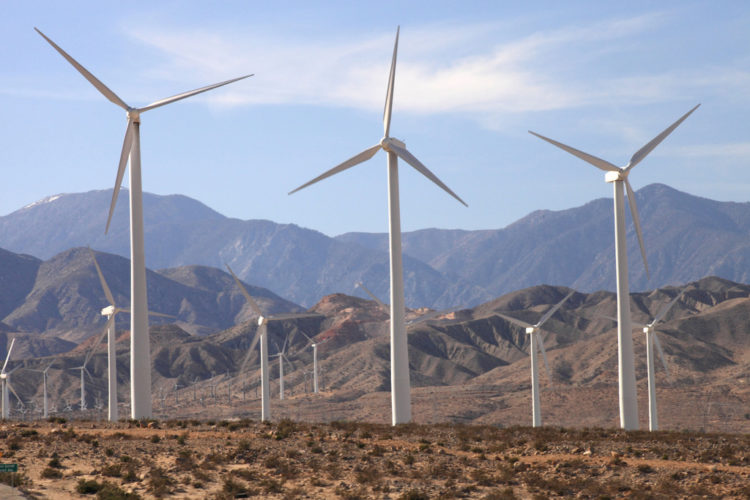Earlier this year, the United States announced a new round of sanctions to be placed on the Russian government due to an apparent cyber attack on the American electrical grid that granted the Kremlin access to a number of essential components of the nation’s energy infrastructure. While the attack was reportedly identified and rooted out of the nation’s essential systems, a message had clearly been sent: America’s enemies are working to infiltrate the electrical grid, and in at least some occasions, they’ve already been successful in doing so.
The realization that foreign governments are working to position themselves to potentially force a blackout within the United States has further reaching implications than concerns about commercial and public setbacks. The vast majority of America’s domestic military and intelligence assets rely on the commercial power grid for day to day operations, meaning even a regional blackout could have not only massive repercussions economically, it could potentially hinder the nation’s ability to respond to an attack. In most areas, even cell phone towers rely on the nearby power grid, meaning a forced blackout would leave large swaths of the nation unable to communicate, and large portions of the nation’s defense apparatus unable to coordinate.
A now dated Pentagon report stated in no uncertain terms over ten years ago: “military installations are almost completely dependent on a fragile and vulnerable commercial power grid, placing critical military and homeland defense missions at unacceptable risk of extended outage,” prompting some within the defense community to call for change. But as is common for many government endeavors, that change has happened slowly throughout much of the nation. Military installations in California, however, have been at the forefront of facing this challenge head on, installing solar panels on bases in Southern California and dedicating considerable effort to increasing their access to renewable energy. This push was, in part, prompted by a large scale blackout throughout much of the region in 2011, though some could argue the effort has been bolstered by the political popularity of green initiatives within the Left-leaning state.
However, despite California lawmakers being eager to pass legislation that encourages the use of renewable energy in commercial and private sectors, they also passed another, less publicized regulation on the use of renewable energy within their state in 2015 — one that bars U.S. military installations within California from producing more than 12 megawatts of renewable energy and prohibits the military from receiving any financial remuneration for excess electricity it can produce and provide to the commercial grid. In short, the regulation, passed in a “trailer bill” that included a variety of unrelated topics ranging from soccer fields to local bodies of water, bars the U.S. military from developing energy independence from the state’s commercial grid — the same commercial grid now recognized as a vulnerable to Russian, and potentially other foreign, infiltration.
The state has, however, recently passed another lightly publicized trailer bill that directs the state’s Public Utilities Commission to work on lifting this energy limitation, though admittedly, they expect this process to take years. Even once the cap is lifted, however, the military is still banned from producing more electricity than they require to operate internally. An argument could be made that California lawmakers are working to protect the competitive environment for renewable energy businesses, but it seems unlikely that Uncle Sam would go into business producing unnecessary levels of energy output when progress toward simply being self-sufficient has been so slow.
All of this begs the question, if California is interested in reducing the nation’s carbon footprint and pursuing renewable sources of energy… why are they continuing to pass legislation that hinders the military from pursuing those same goals? These laws seem to run counter to the popular sentiment among California voters, and further, they force U.S. military installations to remain vulnerable to a cyber attack on the commercial grid.
Already have an account? Sign In
Two ways to continue to read this article.
Subscribe
$1.99
every 4 weeks
- Unlimited access to all articles
- Support independent journalism
- Ad-free reading experience
Subscribe Now
Recurring Monthly. Cancel Anytime.
The state has, however, recently passed another lightly publicized trailer bill that directs the state’s Public Utilities Commission to work on lifting this energy limitation, though admittedly, they expect this process to take years. Even once the cap is lifted, however, the military is still banned from producing more electricity than they require to operate internally. An argument could be made that California lawmakers are working to protect the competitive environment for renewable energy businesses, but it seems unlikely that Uncle Sam would go into business producing unnecessary levels of energy output when progress toward simply being self-sufficient has been so slow.
All of this begs the question, if California is interested in reducing the nation’s carbon footprint and pursuing renewable sources of energy… why are they continuing to pass legislation that hinders the military from pursuing those same goals? These laws seem to run counter to the popular sentiment among California voters, and further, they force U.S. military installations to remain vulnerable to a cyber attack on the commercial grid.










COMMENTS